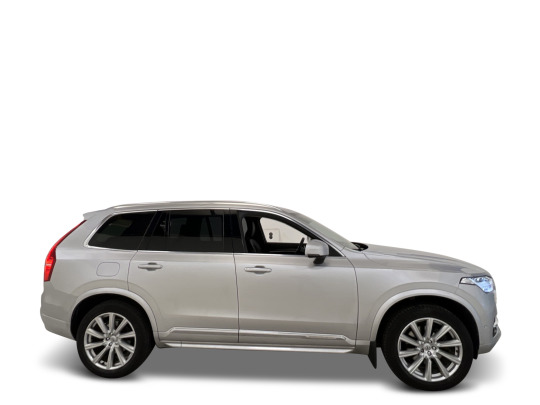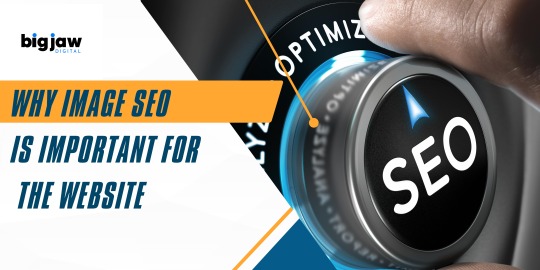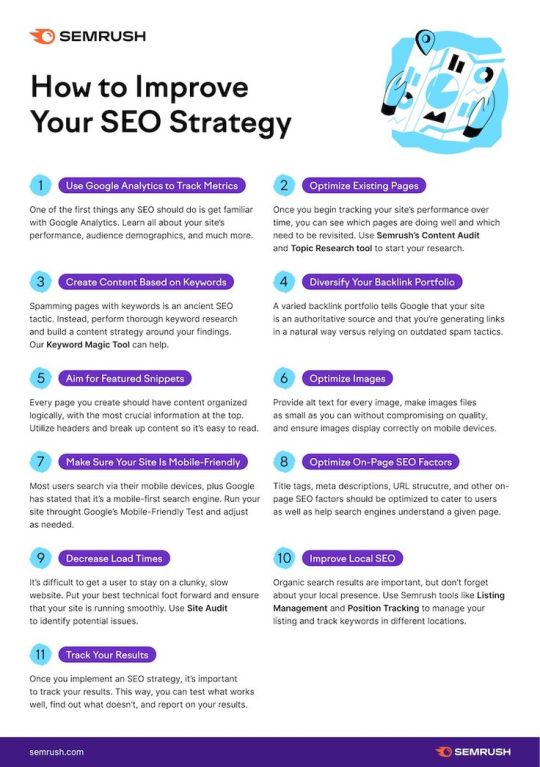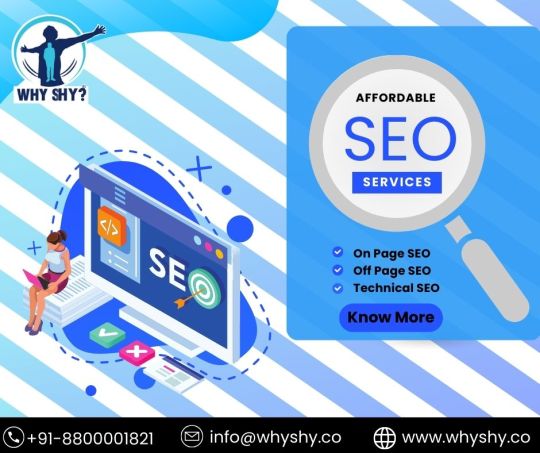#ImageOptimization
Explore tagged Tumblr posts
Text






Professional photo editing can change everything.
Bad photos can ruin a good project.
Here’s how to get the most from a photo editing service:
Define Your Needs Know what you want. Do you need color correction, retouching, or background removal? Be clear about your goals. This helps the service focus on what matters to you.
Review Their Portfolio Look at their past work. A strong portfolio shows their style and quality. Make sure it matches your vision. This is key to getting the results you want.
Check Testimonials and Reviews Read client feedback. Good reviews tell you about the service’s reliability and quality. They can also reveal how fast they work. This helps you choose wisely.
Discuss Turnaround Times Talk about delivery schedules. Make sure they can meet your deadlines. Ask about rush orders and how they handle revisions. This ensures you stay on track.
Compare Pricing Structures Understand their pricing. Check if it’s per image or a package deal. Look for hidden costs. Make sure their rates fit your budget.
Inquire About Security and Data Privacy Confirm they handle your images securely. Ask about their data protection policies. You want to make sure your work is safe.
Evaluate Communication and Customer Support Choose a service that communicates well. Timely responses and flexible revision policies can make the process easier. Good support is crucial.
Request a Test Edit Ask for a sample edit. This lets you see their quality first-hand. It’s a great way to ensure they can deliver what you need.
Following these tips will help you find a reliable photo editing partner. Your images will turn out just as you envision.
#carimageediting#carbackgroundreplacement#carphotoeditingservice#carphotoediting#photoeditingphotoshop#backgroundremover#cardealershipphotoeditor#carbackgroundphotoediting#cardealerphotobackground#Car_photo_editing#bestcareditingservice#Car_Background_remove#removebackground#photoediting#retouch#shadow#clippingpathservice#hairmasking#graphicdesign#productphotography#ecommerceimageediting#photoretouching#photoshop#backgroundremoveservice#dropshadow#cropping#photography#editing#imageoptimization#105w
1 note
·
View note
Text
What is the best size for ecommerce product images
Struggling to figure out what is the best size for ecommerce product images? 📸 Learn how to choose the perfect image dimensions to boost sales, speed up your site, and impress your customers. 🛍✨
👉 Click to read now and level up your online store! 🚀

#EcommerceTips#ProductPhotography#ImageOptimization#OnlineShopping#BoostYourStore#eCommerceTips#PhotoEditing#OnlineStore#PhotoEditingTips#PhotographyPricing#PhotographyBusiness#FreelancePhotographer#EcommercePhotography#EcommerceSuccess#Ecommerce#ecommercebusiness#EcommerceGrowth#ecommercephotographer#ecommercephotoediting#ecommercephotoshoot#onlinesellingtips#GrowYourStore#photographytips
0 notes
Text
Top 10 Image Compression Tools
Looking to optimize your images without compromising quality?
Uncover the Top 10 Image Compression Tools designed to help you save space, boost website speed, and enhance performance with ease!🚀
📸 Ready to take your visuals to the next level? 👉 Click https://www.softlist.io/top-product-reviews/top-10-image-compression-tools/ now and explore the ultimate compression tools for your needs today!
0 notes
Text
How Image Optimization Improves SEO.
Optimizing images improves website speed, user experience, and search engine rankings.
➔ Faster Load Time – Compressed images reduce page loading time, improving SEO. ➔ Better User Experience – Quick-loading pages keep visitors engaged. ➔ Improved Search Ranking – Proper alt text and file names help Google understand the content. ➔ Mobile-Friendly – Optimized images enhance performance on all devices. ➔ Higher Organic Traffic – Better rankings lead to more visitors from image searches. 📬Contact 📩[email protected] ☎️ +8801789165248 (Whatsapp)
@tusherdebnath
#seo#imageoptimization#digital marketing#imageranking#tusher_debnath#improve#optimization#help#socialmediamarketing#digitalmarketing#you#optimisation
0 notes
Text

Why Image SEO is Important for the Website?
In today’s visually-driven digital landscape, images play a central role in enhancing the user experience of your website. High-quality visuals capture attention, convey complex ideas quickly, and help establish your brand’s personality. However, simply uploading images without optimizing them can mean missed opportunities for better search visibility, faster loading speeds, and improved engagement. READ MORE…
1 note
·
View note
Text
Struggling to find the right background for your headshot? The background can make or break your image! Discover tips on selecting the best backdrop that complements your style and enhances your professional presence. A great headshot starts with the right background for LinkedIn or personal branding. Elevate your image today!
#HeadshotTips#Photography#ProfessionalImage#BackgroundChoice#PersonalBranding#ImageOptimization#CareerGrowth
0 notes
Text
Image Masking and Background Removal for Model E-commerce
In the competitive world of e-commerce, high-quality images are critical for capturing customers’ attention and driving sales. For model-based product photography, clean, professional visuals are essential to highlight the products effectively. That’s where our specialized Image Masking and Background Removal services come into play.
Why Choose Image Masking?
Image masking is a precise technique used to separate the subject (e.g., a model) from its background, ensuring every detail—such as fine hair strands or soft fabric edges—is retained. Unlike traditional clipping paths, image masking works perfectly for complex edges and textures, delivering natural and realistic results.
Key Benefits for E-commerce Brands
Enhanced Product Focus: Removing distracting backgrounds ensures that your product remains the star of the image.
Consistency Across Listings: Uniform backgrounds (e.g., white or transparent) create a clean, professional storefront.
Versatility in Design: Easily integrate your product images into promotional banners, ads, and social media posts.
Compliance with Marketplaces: Meet image requirements for platforms like Amazon, eBay, and Shopify, which often demand white or transparent backgrounds.

Our Expertise
Advanced Masking Techniques: We utilize state-of-the-art tools to achieve pixel-perfect masking, especially for challenging details like curly hair, fur, or intricate clothing.
Custom Backgrounds: Replace the background with white, transparent, or tailored designs that align with your brand’s aesthetics.
Color Correction and Retouching: Beyond background removal, we enhance the overall image by adjusting lighting, color tones, and retouching imperfections for a polished finish.
Perfect for Model E-commerce Categories
Apparel and fashion
Accessories (hats, glasses, jewelry)
Footwear
Beauty and skincare products
Why Partner with Us?
With over 10 years of photo editing experience, we understand the unique needs of e-commerce businesses. Our affordable starting price of $0.35 per image, coupled with customized quotes for bulk orders, ensures exceptional value for your investment.
Transform your product images and captivate your audience with our professional Image Masking and Background Removal services. Let your products shine!
For inquiries, quotes, or to get started, contact us at: WhatsApp: +8801789920463 LinkedIn: millatss Email: [email protected]

#ImageEditing#BackgroundRemoval#PhotoMasking#EcommercePhotos#ProductPhotography#PhotoRetouching#ProfessionalEditing#EcommerceSuccess#ProductImages#OnlineStore#VisualBranding#BoostSales#CreativeEditing#PhotoEditingServices#ImageOptimization#CleanBackgrounds#PhotoPerfection#ModelPhotography#EcommerceTips#ProductShowcase
0 notes
Text
Balancing Quality and File Size: Key Techniques for Designers in Photoshop
Image Recreate: Top Inquiries Answered
1.What is mock-up in Photoshop?
A mockup in Photoshop is a visual representation of a design or product, used to showcase how it will look in real life. It typically involves placing graphics or designs onto a pre-existing template or background, allowing designers to present their work in a realistic context, such as on merchandise, packaging, or digital devices.
2. How many layers can you create in Photoshop?
In Photoshop, you can create up to 8000 layers in a single document. However, practical limitations may arise based on your computer's performance and memory capacity. It's essential to manage layers efficiently to ensure smooth workflow and system stability.
3. What is the minimum magnification in Photoshop?
The minimum magnification in Photoshop is 1%. This allows you to view your image at a very small scale, making it possible to see the entire canvas if it's large. You can adjust the zoom level using the zoom tool or the View menu to achieve this level of magnification.
4. How to export for web Photoshop?
To export for web in Photoshop, go to File > Export > Save for Web (Legacy). Choose your desired file format (JPEG, PNG, etc.), adjust quality settings, and check the image preview. Click "Save" to choose the destination and filename. For newer versions, use File > Export > Export As for more options and formats.
5. How to optimize an image in Photoshop?
To optimize an image in Photoshop, follow these steps:
1. Open the image and go to "File" > "Export" > "Save for Web (Legacy)."
2. Choose the desired format (JPEG, PNG, etc.).
3. Adjust quality settings to reduce file size while maintaining quality.
4. Resize the image if necessary.
5. Click "Save" to export the optimized image.

Visit: VS Website See: VS Portfolio
1 note
·
View note
Text
11 Important Steps to Refine Your SEO Strategy

Use Google Analytics to Track Metrics: One of the first things any SEO should do is get familiar with Google Analytics. Learn all about your site's performance, audience demographics, and much more.
Optimize Existing Pages: Once you begin tracking your site’s performance over time, you can see which pages are doing well and which need to be revisited. Use SEMrush's Content Audit and Topic Research tool to start your research.
Create Content Based on Keywords: Spamming pages with keywords is an ancient SEO tactic. Instead, perform thorough keyword research and build a content strategy around your findings. Our Keyword Magic Tool can help.
Diversify Your Backlink Portfolio: A varied backlink portfolio tells Google that your site is an authoritative source and that you’re generating links in a natural way versus relying on outdated spam tactics.
Aim for Featured Snippets: Every page you create should have content organized logically, with the most crucial information at the top. Utilize headers and break up content so it’s easy to read.
Optimize Images: Provide alt text for every image, make images file sizes as small as you can without compromising on quality, and ensure images display correctly on mobile devices.
Make Sure Your Site Is Mobile-Friendly: Most users search via their mobile devices, plus Google has stated that it’s a mobile-first search engine. Run your site through Google’s Mobile-Friendly Test and adjust as needed.
Optimize On-Page SEO Factors: Title tags, meta descriptions, URL structure, and other on-page SEO factors should be optimized to cater to users as well as help search engines understand a given page.
Decrease Load Times: It’s difficult to get a user to stay on a clunky, slow website. Put your best technical foot forward and ensure that your site is running smoothly. Use Site Audit to identify potential issues.
Improve Local SEO: Organic search results are important, but don’t forget about your local presence. Use SEMrush tools like Listing Management and Position Tracking to manage your listing and track keywords in different locations.
Track Your Results: Once you implement an SEO strategy, it’s important to track your results. This way, you can test what works well, find out what doesn’t, and report on your results.
#marketingstrategy#SEO#DigitalMarketing#SearchEngineOptimization#ContentMarketing#Backlinks#SEOTips#WebsiteOptimization#GoogleAnalytics#LocalSEO#MobileFriendly#FeaturedSnippets#KeywordResearch#OnPageSEO#PageLoadSpeed#TechnicalSEO#ImageOptimization#ContentStrategy#DigitalMarketingTips#ImproveSEO
1 note
·
View note
Text
How Does Image Optimization Improve Website Performance in 2025?

In 2025, search engines like Google will prioritize fast, well-optimized websites. A slow-loading site not only frustrates users but also lowers your search ranking. One of the biggest culprits? Unoptimized images!
Why Image Optimization Matters:
✅ Faster Load Times – Large image files slow down your site, increasing bounce rates.
✅ Better SEO – Google rewards sites that load quickly, improving your rankings.
✅ Enhanced User Experience – Visitors stay longer when pages load smoothly.
✅ Higher Conversion Rates – Speedier websites lead to better engagement and sales.
If you’re unsure where to start, this guide breaks it down step by step.
Don't let unoptimized images hurt your website’s potential! Optimize today and stay ahead in 2025. 🚀
0 notes
Text
Maximize Website Performance with Expert Image Optimization Tips!

Boost your website's speed & SEO with top image optimization tips! 📈 Learn how to enhance user experience with Clipping Path Center's guide.
Read more.
1 note
·
View note
Text
Speed Up Your Website with Smart Image Optimization

Speed up your website with smart image optimization by reducing file sizes without sacrificing quality. Use techniques like resizing, choosing the right file format, and applying lossy or lossless compression. Formats such as WebP and JPEG load faster than PNG, improving site performance and enhancing user experience. Read More: https://blog.filestack.com
0 notes
Text

🌟 Who Benefits from A2Z Converter? 🌟 Whether you're a student, professional, photographer, or marketer, A2Z Converter has you covered! ✅
🎓 Students: Convert PDFs to DOC effortlessly for assignments. 💼 Professionals: Export AI files to JPG for sleek presentations. 📸 Photographers: Transform RAW images into high-quality JPGs for editing and sharing. 📈 Marketers: Optimize PNGs for web use and create impactful visuals.
👉 Simplify your workflow today at www.a2zconverter.com!
#A2ZConverter#FileConversionMadeEasy#PDFtoDOC#AItoJPG#PhotographerTips#MarketingTools#DigitalWorkflow#ImageOptimization#ConvertFilesOnline
0 notes
Text
Why Converting ICO to PNG is Essential for Web Developers

Web developers often work with icons to improve the visual aesthetics and usability of websites. While ICO (Icon) files are useful for creating small icons like favicons, converting them to PNG format is essential in many cases. Here’s why:
1. Better Compatibility Across Platforms
ICO files are primarily designed for Windows and may not display correctly on all platforms or browsers. PNG files, on the other hand, are universally supported across all web browsers and operating systems, making them the preferred choice for web projects.
2. High-Quality, Lossless Compression
PNG files offer lossless compression, meaning they retain their image quality even when resized or edited. This makes PNG the go-to format when developers need scalable, high-quality images without compromising on visual clarity.
3. Transparency for Flexible Design
One of PNG’s biggest advantages is its support for transparency, allowing web developers to create icons that blend seamlessly with any background. This is essential for modern, responsive web designs.
4. Faster Page Load Times
ICO files are typically heavier due to the multiple sizes stored within them. Converting them to a single PNG file reduces the size and improves website load times, enhancing overall performance and user experience.
Conclusion
For web developers looking to optimize their designs, convert ICO to PNG for improved compatibility, transparency, and performance. It’s a simple step that can make a big difference in delivering a polished, professional website.
#ICOTOPNG#WebDevelopment#ImageOptimization#WebDesign#PNGIcons#FasterWebsites#GraphicDesign#AppDevelopment#ImageConverter
1 note
·
View note
Text
🖼️ Remove Backgrounds from Your Images Instantly with Our Free Background Remover! 🖼️
Looking to make your images pop? Our FREE Background Remover Tool allows you to effortlessly remove backgrounds from any image, giving you a clean and professional look in seconds!
✨ Why Choose Blue SEO Tools?
Completely Free 🆓
No Sign-Up Required 🙅♀️
Fast & Easy to Use 🚀
High-Quality Results 🎨
Perfect for designers, marketers, and anyone wanting to enhance their images for presentations, social media, or online stores!
💻 Remove your image backgrounds now! 👉 Background Remover Tool
#BackgroundRemover#FreeImageTools#OnlineTools#BlueSEOTools#ImageEditing#ImageOptimization#FreeTools#GraphicDesign#DigitalMarketing#PhotographyTools#FreeSoftware#ContentCreation#ImageManagement#ProductivityTools#RemoveBackgrounds
0 notes
Text
Affordable SEO Services in Delhi - Boost Your Website Traffic with Expert Support

Get your website to rank higher and attract more visitors with our SEO services in Delhi. Our experienced team offers personalized strategies to help your business grow. Start improving your online presence today!
#ImageOptimization#SEOServicesDelhi#WhyShy#BoostWebsiteTraffic#SearchRankings#SEOExperts#SEOServices#DelhiDigitalMarketing
0 notes